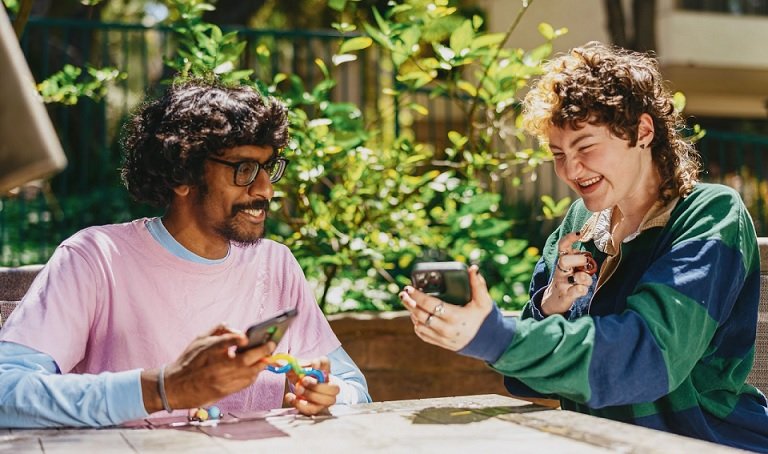Introduction
People with ADHD frequently find it difficult to carry on a conversation. This can cause them to get distracted, ramble on, and dominate it.
Due to past social faux pas, they might also stand too close, interrupt, or watch what they say.
Moreover, people with ADHD lack focus and executive function. Therefore, adults with ADHD may experience comparable difficulties managing several conversations. They fail to keep on topic and remember specifics.
Nonetheless, by continuously practicing new skills and learning new ones, one might avoid these possible blunders.
To enhance social connections and general well-being, one must routinely utilize these new tools and practices.
Social Life With ADHD
Difficulty in listening and focusing during conversations is a common challenge for individuals with ADHD.
As a result, the individual needs to understand important exchanges or directions and comprehend them fully. This can lead to nodding off during crucial moments.
This condition can cause impulsive interruptions during conversations. Therefore, it becomes difficult for the brain to focus.
Consequently, the individual often fails to control their reactions. This can come out as impolite to others.
ADHD can also hinder sociability by impairing the brain’s ability to prioritize information. This can result in forgetfulness and make it difficult to detect social signs.
Moreover, people with ADHD find it harder to recall names or discern social cues from other people.
Therefore, ADHD can accidentally affect social interaction and communication.
Strategies To Navigate Social Situations With ADHD
Learning new tools and practicing them regularly can help individuals with ADHD overcome social challenges they may face.
So here are some strategies that can help you or your loved ones fight ADHD and maintain social standards of communication—
1. Do Not Hide Your Condition
About one-third of those with ADHD frequently engage in “impression management,” or ADHD masking.
This is imitating the actions of others who do not have ADHD to mask symptoms and blend in.
Examples include keeping calm, reacting appropriately, and disguising hyperactivity. It’s also possible to use hyper-focus on work to prevent impulsivity and distractions.
On the other hand, there are drawbacks to this approach, including the following:
- A higher risk of substance abuse.
- Anxiety.
- Sadness.
- Delayed diagnosis.
It can also cause internal tension to take the place of external stress. Therefore, this can lead to years without a diagnosis for some people.
Furthermore, masking can make it difficult for people to discern between real and fictitious activities, resulting in a lack of self-awareness and difficulty doing so.
2. Visualize Other’s Speech
You can reduce anxiety and increase confidence by picturing social interactions and conversations in your mind.
It facilitates practicing important social skills, including inquiring thoughtfully, listening intently, and expressing viewpoints.
Moreover, being mentally ready for the occasion makes you feel more at ease and prepared. Therefore, using your imagination to practice these skills can help you think quickly and reply confidently in real-time talks.
Imagine having multiple casual discussions on various topics. This can ease your tension and anxiety about the occasion and make you feel more prepared.
3. Practice Mindfulness
Mindfulness is about paying attention to your thoughts and feelings in the present moment. It’s a way to focus on what’s happening inside you.
It can be accomplished through informal activities, contemplative traditions, or meditation and aids in developing self-regulation skills.
For people with ADHD who find formal practices burdensome, it might be more helpful.
Moreover, you must acknowledge the mind’s and body’s experiences with kindness and compassion to promote awareness.
Therefore, concentrate on mindfulness exercises and attention training to lessen worry and anxiety. It helps manage your emotions better.
Encouragement of physical relaxation can assist the mind in calming down for people whose minds work quickly.
Walking, yoga, and other physical activities are good mindfulness practices. Take walks in the outdoors and use all of your senses.
When To Find Professional Help?
Getting professional assistance is essential for managing ADHD in social situations. A therapist can help you understand your diagnosis and develop coping strategies without interfering with your daily activities.
Social settings with ADHD can be navigated using several useful techniques.
However, therapy, along with social coping mechanisms, can help people with ADHD learn the following:
- Goal-setting.
- Time management.
- Plan adherence.
A psychiatrist or therapist with expertise in ADHD can provide direction, encouragement, and customized techniques.
It could be suggested to take medication to reduce discomfort and enhance concentration.
Finding the ideal mix of adhd brain training techniques is important. However, with professional help, you can find this easily.
Therefore, with the correct tools, you may live a happy and fulfilling life while managing ADHD.
Live A Beautiful Life!
The behavioral traits of ADHD, a spectrum condition, can be adaptive rather than debilitating.
Adults with ADHD may have specific strengths or characteristics that mitigate or make up for their limitations.
Therefore, you can maintain composure, reduce mood swings, and battle the signs of anxiety and depression with a healthy lifestyle.
For those with ADHD, having regular routines can help them manage their lives better. It is critical to understand that living with ADHD does not have to be difficult.
Adults with ADHD can overcome their limitations or impairments by being adaptable and making use of certain strengths.





